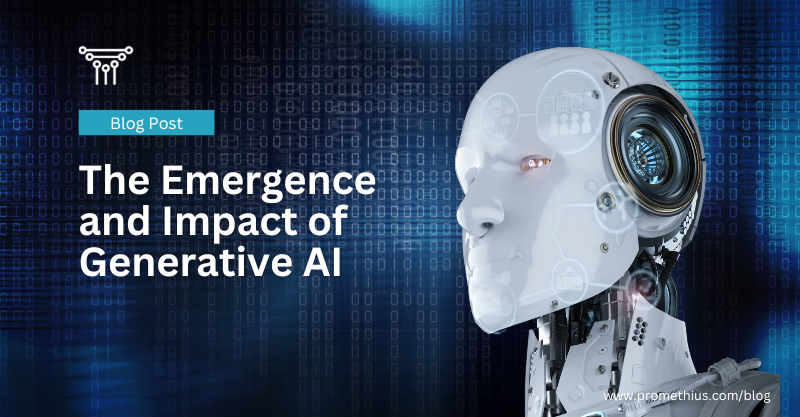The Emergence and Impact of Generative AI

The field of artificial intelligence (AI) has experienced a myriad of transformative advancements in recent years, among which the advent of generative AI stands out as particularly revolutionary. Generative AI refers to a subset of artificial intelligence that focuses on creating new content, such as text, images, music, and even code, by learning patterns from existing data. This innovative approach has opened up a wealth of possibilities across various industries, reshaping the way we think about creativity and problem-solving.
More...
The Technology Behind Generative AI
At the core of generative AI are sophisticated algorithms and models, such as Generative Adversarial Networks (GANs) and Variational Autoencoders (VAEs). GANs, introduced by Ian Goodfellow and his colleagues in 2014, consist of two neural networks—a generator and a discriminator—that work in tandem to produce new data. The generator creates synthetic data, while the discriminator evaluates its authenticity against real data. Through this adversarial process, the generator improves over time, producing increasingly realistic outputs.
VAEs, on the other hand, are probabilistic models that encode input data into a latent space and then decode it back to generate new data. These models are particularly effective in applications where the goal is to create data that is similar, but not identical, to the original input.

Applications of Generative AI
The applications of generative AI are vast and varied, spanning multiple domains:
Art and Design
Generative AI has made significant inroads in the fields of art and design. Artists and designers use these technologies to explore new creative possibilities, generating unique artworks, designs, and animations. For instance, AI-generated art has gained recognition in prestigious galleries and auctions, challenging traditional notions of creativity and authorship.

Content Creation
In the realm of content creation, generative AI is revolutionizing the way we produce text, music, and multimedia. AI-driven tools like OpenAI's GPT-3 can generate coherent and contextually relevant text, assisting writers in drafting articles, stories, and even code. Similarly, AI-powered music composition tools help musicians create original pieces, offering new avenues for artistic expression.
Healthcare
Generative AI is also making a profound impact in healthcare. Researchers and clinicians leverage these technologies to generate synthetic medical data, which can be used to train machine learning models without compromising patient privacy. Additionally, generative AI aids in drug discovery by predicting molecular structures and generating potential candidates for new medications.
Gaming and Virtual Environments
In the gaming industry, generative AI is transforming the development of virtual environments and characters. AI-generated landscapes and narratives enhance the gaming experience, providing players with immersive and dynamic worlds. Game developers utilize these technologies to create content that adapts to player interactions, resulting in personalized and engaging experiences.

Challenges and Ethical Considerations
While the potential of generative AI is immense, it also raises several challenges and ethical considerations. One major concern is the generation of deepfakes—hyper-realistic synthetic media that can be used to spread misinformation and manipulate public opinion. The ability of generative AI to create convincing fake content necessitates the development of robust detection and verification methods to ensure the integrity of information.
Another ethical issue is the question of authorship and ownership. As AI-generated content becomes more prevalent, determining the rightful creator and the associated intellectual property rights becomes increasingly complex. Establishing clear guidelines and regulations is essential to address these concerns and protect the interests of both human creators and AI developers.

The Future of Generative AI
The future of generative AI is both promising and challenging. As the technology continues to evolve, it will likely play an even more integral role in various aspects of our lives, from entertainment and communication to healthcare and beyond. Continued research and development will further enhance the capabilities of generative AI, unlocking new possibilities and applications.
However, it is crucial to approach the advancement of generative AI with caution and responsibility. Ensuring that these technologies are used ethically and transparently will be key to harnessing their full potential while mitigating the associated risks.
In conclusion, generative AI represents a groundbreaking frontier in artificial intelligence, offering unprecedented opportunities for innovation and creativity. As we navigate this rapidly evolving landscape, it is essential to balance technological progress with ethical considerations, paving the way for a future where AI enhances and enriches human life.
